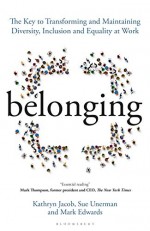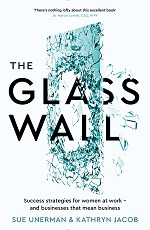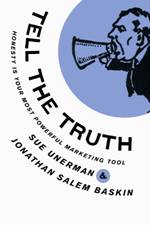 Innovation is much prized. For good reason as the last two centuries have seen change at an unprecedented pace, a pace that seems only to be speeding up. In the race for change some have gained, some have lost. Some brands have thrived, some have died. Surely the single most important trait to have therefore in your business, in your career is innovation?
Innovation is much prized. For good reason as the last two centuries have seen change at an unprecedented pace, a pace that seems only to be speeding up. In the race for change some have gained, some have lost. Some brands have thrived, some have died. Surely the single most important trait to have therefore in your business, in your career is innovation?
Yet the I word is a little like the C word (I mean Creativity). Both are much talked about, much desired and can often be misdirected. Innovation when not appropriate is tiresome, and possibly destructive. It leads to a misdirection of energy and will not lead to positive change.
The British Science Association have compiled a list of the top ten innovations that should have step changed their sector, or even the world we live in, but failed to change anything.
The list includes Concorde, a masterpiece of tech but a commercial failure, microwave ovens (were going to make us all chuck out our traditional ovens), high rise buildings, the moon landings, magnetic trains, and my personal favourite, as I can remember this being announced repeatedly as a game changer, video conferencing. I know grandmothers who “video conference” their grandchildren more frequently than most of us use the facility. My last video conference was last summer. I’m in conference calls constantly. But my face just doesn’t seem to be required.
There is just something about the idea of innovation that appeals. It is a great “brand attribute” to have. The two most significant attributes that sell more product in most categories are innovation and value for money. Preferably both.
Yet innovation needs strategy to guide it. Or it can really be a waste of time and money (I’m sure we can all think of pointless innovations that we’ve wasted time over in the last few years.)
We both like and fear innovation for deep rooted reasons. The zone of proximal development is crucial to learning when we are children. This zone contains new stuff that is just about within our reach. Learning is play, and in this zone innovation is fun and rewarding. Our animal brain however fears innovation. When something changes in the environment our brains alert us to danger (think of a deer startled in the forest by the unexpected snap of a twig). In this way therefore innovation can terrify. Too much changing too soon and without proper attention to detail simply step changes our stress levels not our ability to progress.
Furthermore one innovation is not enough. It must be embedded in the culture of your business. One of the world’s greatest and most famous innovators Henry Ford was a great innovator initially and then a real conservative in many respects. He brilliantly intuited what would happen if an ordinary person was treated as a consumer and if their growing aspirations were met at scale. Having made his breakthrough in car manufacturing and led the development of industrialism, he failed to see that consumer’s aspirations would not stop at his product, and for many years fought against the innovations that his competitors created to overtake him, both in product novelty and in industrial relations.
A framework for innovation is essential – you have to change simply to stand still let alone develop. You cannot sit on one great innovation and expect it to sustain your business. Nor can you afford innovation for the fun of it. It must be applied at scale and purposeful or it is not worth the candle.



Secrets for Success in the Economy of Wishes
Friday, April 11th, 2014Adweek Europe. Not much else was talked of in my (admittedly fairly narrow) professional circle last week. The consensus was that the organisers excelled themselves in creating a true festival of advertising and media.
The idea of an economy of wishes was introduced by PWC as way of describing a shift in the old asymmetry of economic power.
In the old days brands and manufacturers held the cards and gave out information at their own pace. Now, as I described in my book Tell The Truth, consumers can see all the cards and find out whatever they wish to via their tablets and smart phones about a brand. Relative prices, satisfaction reviews, sourcing, crm policies and indeed even the pay ratios of the CEO to the average, all in a few moments.
Our debate was around how best to manage a retail brand in this environment and the consensus was around disclosure, authenticity and treating the customer as if they matter. Nish Kukadia CEO, Secretsales.com explained that customer satisfaction scores rocketed when they clearly explained the shipping process for product and defined expectations accurately around speed of delivery.
I cited the latest Edelman Trust Barometer which once again shows the growing trend that consumers trust the opinions of employees, people like them, more than CEOs or paid experts, which means that businesses that empower their staff reap rewards as every encounter with customers is a positive brand building opportunity.
It has to be authentic of course. Meeting Dick Costolo, CEO of Twitter, later last week, we agreed that consumers can sniff out the slightest hint of inauthentic communications. In one to one encounters in a shop, in customer service calls and via Twitter. There’s a divide coming between brands we can believe in because they’re true to themselves and have trusted representatives who believe in the brand, and those where the employees are either disillusioned or, worse, sound like they’ve drunk too much of the Kool-Aid and are just spouting the company line. Come to think of it I could name media owner brands and sales teams that represent either side of that divide too. Can you?
In the economy of wishes if we imagine something we can make it happen. How do we choose where to spend our time and money, personally or professionally? We will choose where we trust in the brands and the people that represent them.
Posted in MediaComment | No Comments »